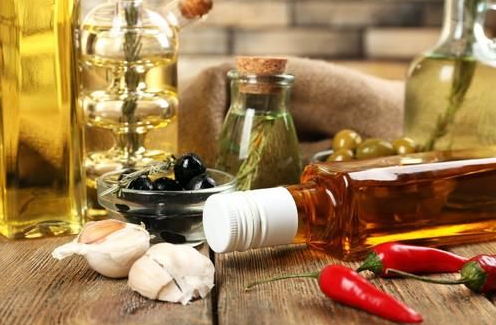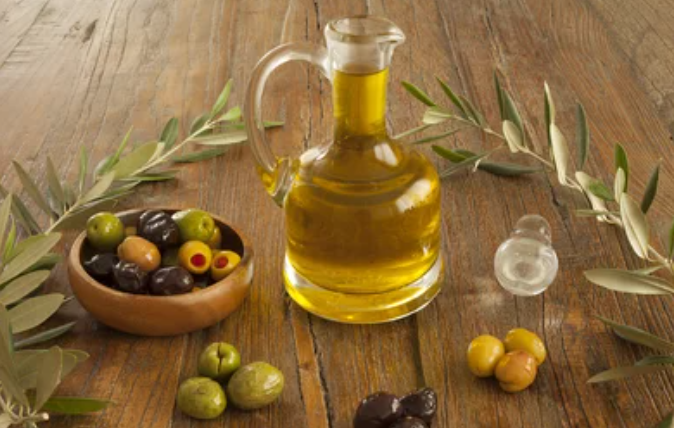Food is the top priority for the people, and edible oil is an indispensable food in people's daily life. There are many types of edible oil, such as olive oil, tea oil, lard, genetically modified oil, etc., and the prices are naturally different. What is the nutritional value of the different edible oils? Are genetically modified edible oils and blended oils harmful to humans? Faced with edible oil at different prices in supermarkets, how should consumers choose the edible oil that suits them? Understanding the following questions may help you choose cooking oil.

1. Excessive consumption of animal oil is harmful
Animal oils (saturated fatty acids) that require a dose are beneficial to the human body. Excessive consumption of animal oil will have a negative effect. The ratio of animal oil and vegetable oil of 3:7 is reasonable as the edible oil for ordinary people.
Edible oils are classified into animal edible oils and vegetable edible oils according to their sources. Animal edible oils refer to refined edible oils derived from natural animal fats, such as butter, tallow, and lard. The refined edible oils derived from natural vegetable oils (including herbs and woody oils) are called vegetable edible oils. Such as soybean oil, rapeseed oil, peanut oil, olive oil on the market. Animal oil contains more saturated fatty acids and cholesterol. Excessive consumption can easily cause high blood pressure, arteriosclerosis, coronary heart disease, hyperlipidemia and cerebrovascular accidents, which is harmful to the human body. But animal oil has a more fragrant taste and can promote the absorption of fat-soluble vitamins A, D, E, and K. In addition, cholesterol in animal oil is also an important component of human tissue cells, and an important raw material for the synthesis of bile and certain hormones.

2. There are reasons for the high prices of olive oil and tea oil
Olive oil comes from olive fruit. The olives that take oil are called Olea europaea. At present, the total output of olive oil in the world only accounts for 3.3% of the world's edible vegetable oil output, so olive oil is even more precious.
Olive oil is recognized as a good woody edible vegetable oil in the world. It is the main edible vegetable oil in the "Mediterranean diet pattern". It is recommended by the World Health Organization (WHO) as a health nutrient oil that is beneficial to human cardiovascular health. The characteristic of olive oil is that the content of monounsaturated fatty acids exceeds 80%, and the content of polyunsaturated fatty acids such as linoleic acid exceeds 10%. The oil also contains vitamin E, vitamin D, vitamin K and carotene (vitamin A source). More importantly, it contains squalene. Squalene is a physiologically active ingredient with good oxygen-enriching capacity, anti-anoxia and anti-fatigue, and has the function of accelerating human immunity and enhancing gastrointestinal absorption.
Camellia oil is obtained from the seeds of the Camellia oleifera tree, also known as tea seed oil, tea tree oil or camellia oil. Like olive oil, tea oil contains vitamin E, vitamin D, vitamin K, carotene (vitamin A source), squalene and other physiologically active ingredients that have health effects. Moreover, the content of monounsaturated fatty acids in tea oil exceeds 80%. Above, the content of polyunsaturated fatty acids such as linoleic acid is more than 10%, but more importantly, tea oil also contains tea polyphenols and camellinosides (that is, tea saponin, tea saponin) that are not found in olive oil. According to experiments conducted by the National Medical Center of the United States, the tea polyphenols and camellinosides in tea oil have obvious effects on lowering cholesterol and anti-cancer. In addition, tea oil also has the obvious effect of delaying the formation of atherosclerosis, has the effect of regulating blood lipids and speeding up immunity. Therefore, it can be said that tea oil is a kind of edible oil with a healthier effect than olive oil.

3. Make consumers aware of genetically modified oil
The safety of genetic modification has always been the focus of debate among scientists. Therefore, genetically modified foods should be labeled, and genetically modified food manufacturers should mark their product packaging. This is not only the country has strict regulations in this regard, but also reflects the integrity of the enterprise. Consumers should have the right to know and the right to choose. Consumers can freely decide whether to choose genetically modified cooking oil.
Regarding blended oil, edible oil prepared by mixing two or more types of edible oils in proportion is called blended oil. We can use a variety of edible oils to formulate nutritional blending oils with reasonable fatty acid composition to achieve different specific populations, especially patients and sub-healthy populations. This kind of real nutritional blending oil for certain people is definitely better than tea oil or olive oil. It is suggested that edible oil production enterprises should creatively research and produce reasonable nutritional blending oil with fatty acid composition suitable for specific groups of people.
Copyright © Henan Zhongxing Grain And Oil Machinery Co.,Ltd. All Rights Reserved. Powered by MetInfo